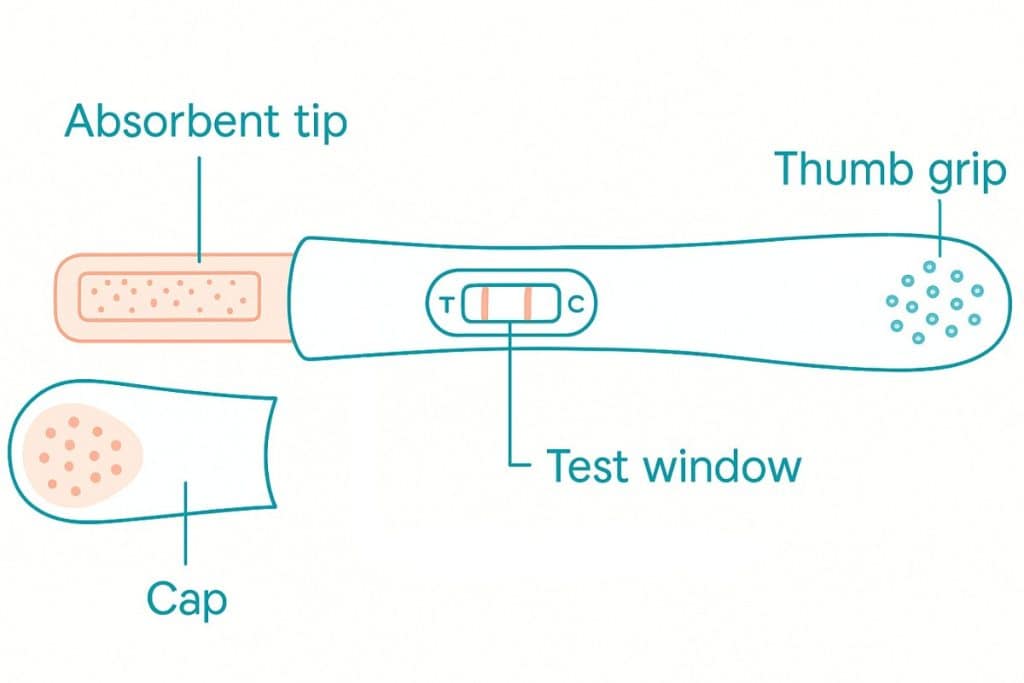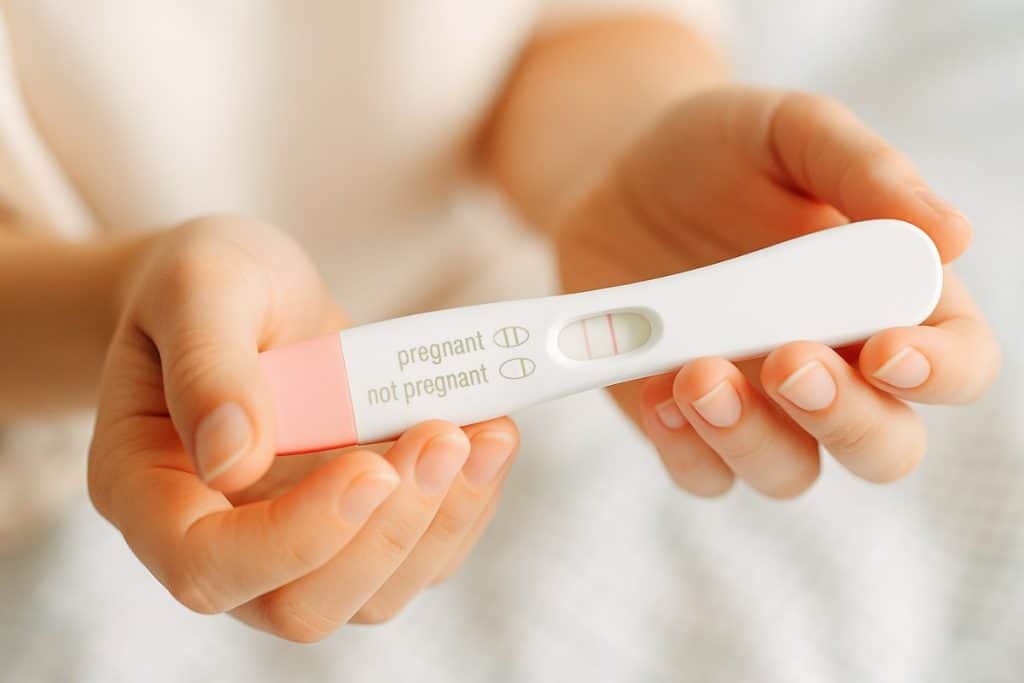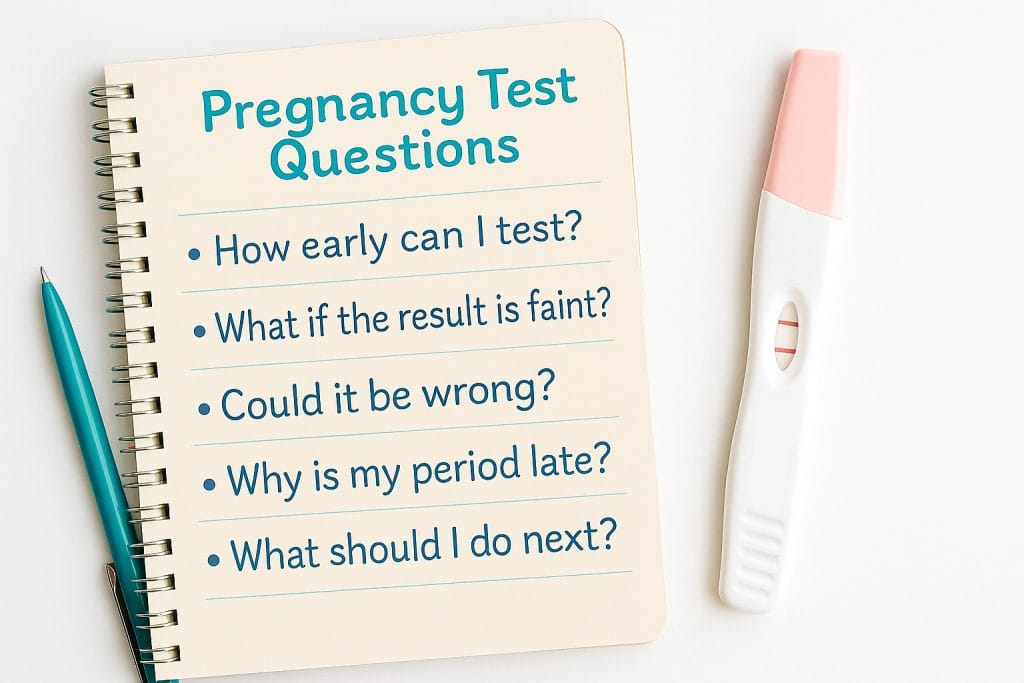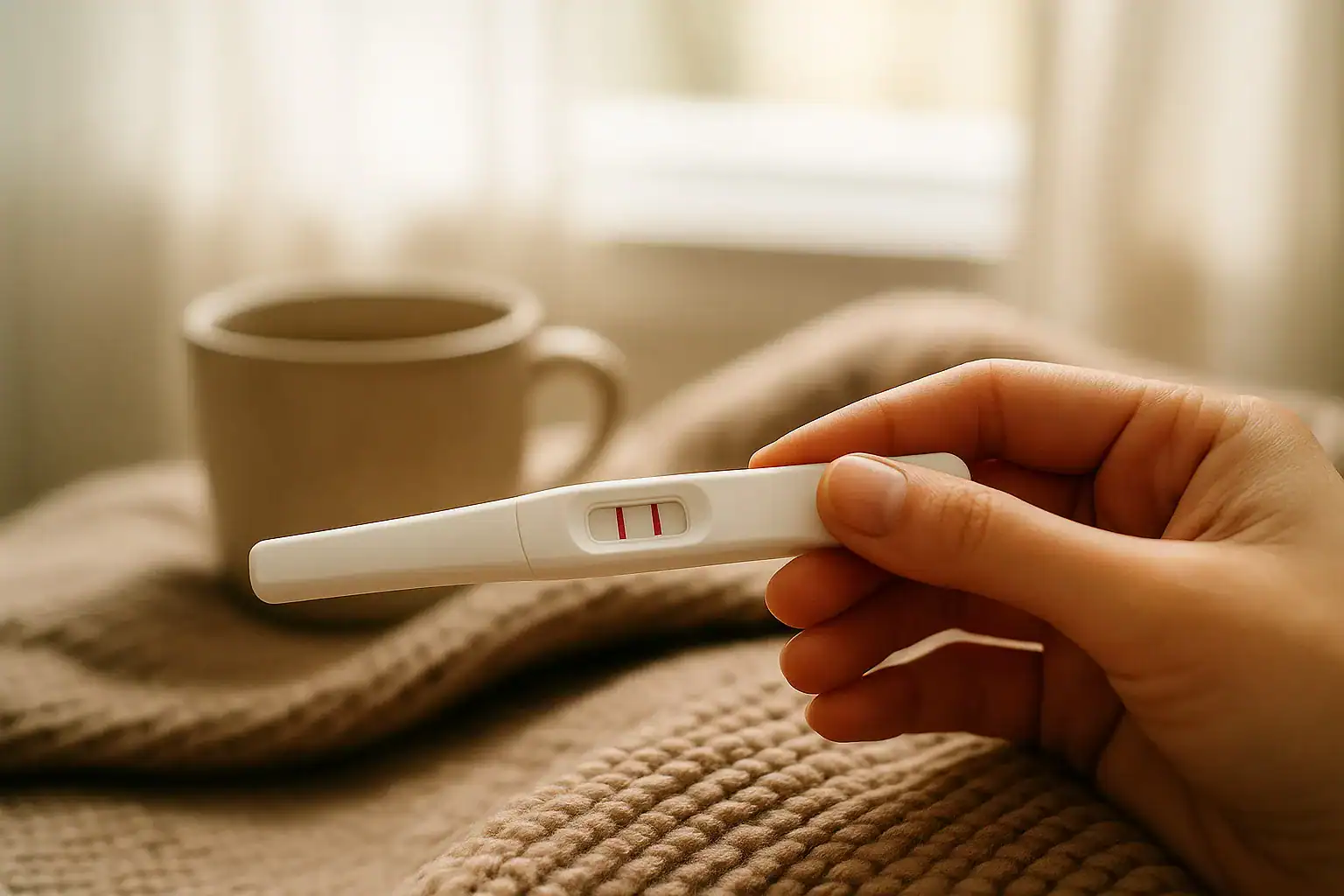Pregnancy Tests: When to Take One, How They Work, and Making Sense of the Results
Waiting on a pregnancy test result can feel like holding your breath underwater. Time slows down, your brain races, and a thousand hopes and fears swirl around a tiny plastic stick. Whether you’re trying to conceive or navigating the unexpected, you deserve clear, calm answers, without the overwhelm.
This guide is here to walk with you through everything you need to know: how pregnancy tests work, when to take one, how to make sense of the results, and what to do next. We’ll also answer the most common questions that pop up at 3 a.m. when your brain won’t stop Googling. You’re not alone here.
- What Is a Pregnancy Test, Really?
- Pee Sticks, Digital Readers, and Lab Draws: Understanding the Options
- When Should You Actually Take a Test?
- What Can Affect Your Results?
- How to Take a Pregnancy Test (Without Second-Guessing Everything)
- Decoding the Lines: What Does the Result Actually Mean?
- Can a Pregnancy Test Be Wrong?
- What If Your Period's Late but the Test Says You're Not Pregnant?
- Frequently Asked Questions (Quick Answers for Busy Brains)
- Digital or Line Test: Which One's Better?
- How soon will a pregnancy test read positive?
- Can you take a pregnancy test while on your period??
- Do cheap pregnancy tests work?
- How many pregnancy tests should I take?
- What if my test line is darker than the control line?
- What's the best time of day to take a pregnancy test?
- Is it possible to get a positive test and not be pregnant?
- What's the difference between blood and urine tests?
- Where to Go From Here
- Need Extra Support?
- A Soft Goodbye (But Not Really)
What Is a Pregnancy Test, Really?
A pregnancy test checks for a hormone called hCG, which your body produces after implantation. If enough hCG is in your urine or blood, the test will show a positive result. It’s one of the earliest clues that your body may be starting something new. If you’re not quite ready to take a test but think something might be shifting, your body may already be offering subtle clues.
At its core, a pregnancy test is a quiet little science project that looks for hCG – the hormone your body makes after a fertilized egg implants in your uterus.
You can take a test at home using urine, or your provider can order a blood test. Both kinds are looking for the same hormone, just in different ways and at different sensitivities.
For a quick, trustworthy explanation of how tests detect hCG, the Cleveland Clinic has a great breakdown.

Pee Sticks, Digital Readers, and Lab Draws: Understanding the Options
Home tests check urine for hCG, while lab tests can measure hCG more precisely through blood. Both are effective when used correctly. Urine tests are quick and private, but blood tests are more sensitive and helpful when timing or results are unclear.
1. Urine Tests (At-Home): These are the familiar over-the-counter ones. Some use lines, others give a digital answer. They’re private, quick, and fairly accurate when used correctly.
2. Blood Tests (At the Doctor’s Office): There are two kinds: qualitative (yes/no) and quantitative (measures hCG level). The latter can track how your hCG is rising over time, which can help assess the health of the pregnancy.
These tests can detect pregnancy earlier and more precisely. They’re especially helpful if you’re using fertility treatments or have confusing urine test results.
Each has its strengths. Urine tests are easy and fast. Blood tests are more sensitive, especially in early pregnancy or complex cases like fertility treatment.
When Should You Actually Take a Test?

The best time to take a pregnancy test is after you’ve missed your period. Some tests claim to work earlier, but testing too soon often leads to faint lines or false negatives. Waiting until the day after your missed period gives you the most reliable result.
According to the Mayo Clinic, testing too early is one of the most common reasons a pregnancy test doesn’t show a positive even if you’re pregnant.
Most tests can pick up a pregnancy 10 to 14 days after ovulation. But that timing can be tricky, especially if your cycle isn’t predictable. If your periods are irregular, timing a pregnancy test can feel like shooting in the dark. In that case, try counting at least 14 days from when you think ovulation or conception may have happened.
Just remember: it’s implantation that triggers hCG production, not the moment of ovulation or sex. Your body needs time to build enough hCG to show up on a test and sometimes, that takes a little longer than expected.
And yes… waiting is the worst. But if you can hold out just a little longer, you’ll get results you can actually trust.
What Can Affect Your Results?
Timing, hydration, test sensitivity, and even medications can influence your results. Conditions like PCOS, breastfeeding, or recent miscarriage may also confuse the outcome. If your test is negative but your body feels different, you’re not imagining things. You may still be pregnant even if the test says no and there are good reasons why that happens.
Let’s be real: biology is messy.
- Breastfeeding may delay the return of your regular cycles and make ovulation harder to pinpoint. If you’re not ovulating consistently, it can throw off test timing and lead to early false negatives. Additionally, hormonal fluctuations during lactation might impact how your body produces and clears hCG.
- If you took an hCG injection, it can stick around in your system for 10–14 days. Testing too soon can give a false positive.
- PCOS, ectopic pregnancy, or recent miscarriage might cause unexpected results
- Even twins can sometimes trigger false negatives early on due to a quirky lab phenomenon known as the “high-dose hook effect” (yes, that’s a real thing – Washington University Medicine explains it well)
- Stress, oddly enough, doesn’t change your hCG levels, but it can delay your period, which throws off your testing schedule
Bottom line? If you’re getting results that don’t match your body’s signals, talk to a provider. Trust your gut.
How to Take a Pregnancy Test (Without Second-Guessing Everything)
Taking a pregnancy test can feel high-stakes. Use first-morning urine, follow the instructions exactly, and don’t test too early. Simple things like overhydrating or checking results outside the time window can change what you see.
It’s also surprisingly easy to make a mistake, like testing too soon, using an expired test, or misreading the result. Here are the most common pregnancy test mistakes to avoid.
Taking a pregnancy test can feel a little nerve-wracking, especially when it feels like everything is riding on that little window. These steps can help you feel more confident about the process and less likely to second-guess what you’re seeing.
Read the instructions.
Even if you’ve taken one before, brands vary. Some want you to dip the test, others want a midstream sample. Following the instructions to the letter helps avoid false results.
Use first morning urine.
This is when your hCG levels are most concentrated. If you test later in the day, especially early in pregnancy, you might get a false negative.
Avoid overhydrating.
It’s tempting to drink a bunch of water to test quickly, but too much fluid can dilute your urine and reduce hCG concentration.
Collect your sample.
Depending on the brand, you may pee directly on the test or dip it into a collected sample. Either method works if you follow the instructions exactly.
Set a timer and wait.
Check the time recommended in the instructions and wait it out. Don’t keep staring or peek early, it just adds stress and doesn’t change the outcome.
A few test-taking truths:
- Don’t use a test past its expiration date
- Store them away from heat and humidity
- If your result feels unclear, retest with a new one in a few days
- If the lines seem faint, snap a photo and compare later
Decoding the Lines: What Does the Result Actually Mean?

Even a faint line usually means yes. If it shows up within the time frame, it’s likely a true positive. No line, or a line that appears much later, could be a false negative or evaporation line. Digital tests help reduce the guesswork.
Still unsure what your line is trying to say? Here’s what pregnancy test lines really mean and when to retest.
Positive:
A faint line is still a positive. It just means your hCG levels are still building. Some tests pick it up early, even when the line looks barely there.
Negative:
If you tested early, try again in a couple of days. If your period is still missing after a week and the test is negative, check in with your provider.
Invalid:
If no lines show up, or only the test line appears without a control line, it didn’t work. Time for a do-over.
Evaporation Lines:
These tricky grey lines can appear if you check the test after the recommended time. If you’re ever unsure, retest. They’re not faint positives, just a shadow of the test drying.
Can a Pregnancy Test Be Wrong?
Yes, but most of the time there’s a reason. False negatives are more common and often caused by testing too early or using diluted urine. False positives are rare, but can happen with certain medications or hormone shifts.
False negatives are more common – usually caused by testing too early or diluted urine.
False positives are rare, but possible with fertility meds, recent miscarriage, chemical pregnancy, or some medical conditions.
Wild card:
Some people with twins or certain hormone imbalances can get misleading results, especially early on.
If you’re seeing positives then negatives (or vice versa), you’re not alone. Mixed results are surprisingly common. Keep notes, take pictures, and follow up.
What If Your Period’s Late but the Test Says You’re Not Pregnant?
A late period with a negative test doesn’t always mean you’re not pregnant. Ovulation may have happened later than usual. Wait a few days and test again. If your period doesn’t show up, it’s okay to call your provider for clarity.
This happens more often than you’d think. Sometimes your cycle just shifts, especially with stress or illness.
It can also mean your ovulation was delayed, and you tested too early without realizing it.
Wait a few days and test again. If it’s still negative and your period hasn’t come after a week or two, a provider can help figure out what’s going on.
You haven’t failed. Your body’s just taking its sweet time.
Frequently Asked Questions (Quick Answers for Busy Brains)

Digital or Line Test: Which One’s Better?
How soon will a pregnancy test read positive?
Can you take a pregnancy test while on your period??
Do cheap pregnancy tests work?
How many pregnancy tests should I take?
What if my test line is darker than the control line?
What’s the best time of day to take a pregnancy test?
Is it possible to get a positive test and not be pregnant?
What’s the difference between blood and urine tests?
Where to Go From Here
Whether you’re staring at a negative test and hoping for a different result next month, or you’re newly pregnant and figuring out what’s next, BabyHopes is here to walk beside you.
If your test just turned positive, you might be wondering what happens now. Here’s a gentle guide to your first steps after a positive pregnancy test.
Need Extra Support?
Curious what others are using?
A Soft Goodbye (But Not Really)
We know this stuff isn’t just clinical. It’s emotional. It’s personal. Sometimes it’s heartbreaking.
No matter what showed up on your test, your feelings are valid. And you don’t have to figure this out alone.
We’ll be here when you’re ready, when you need a next step, or when you just want someone to explain things without making it more overwhelming.
You’re doing great. Really.
